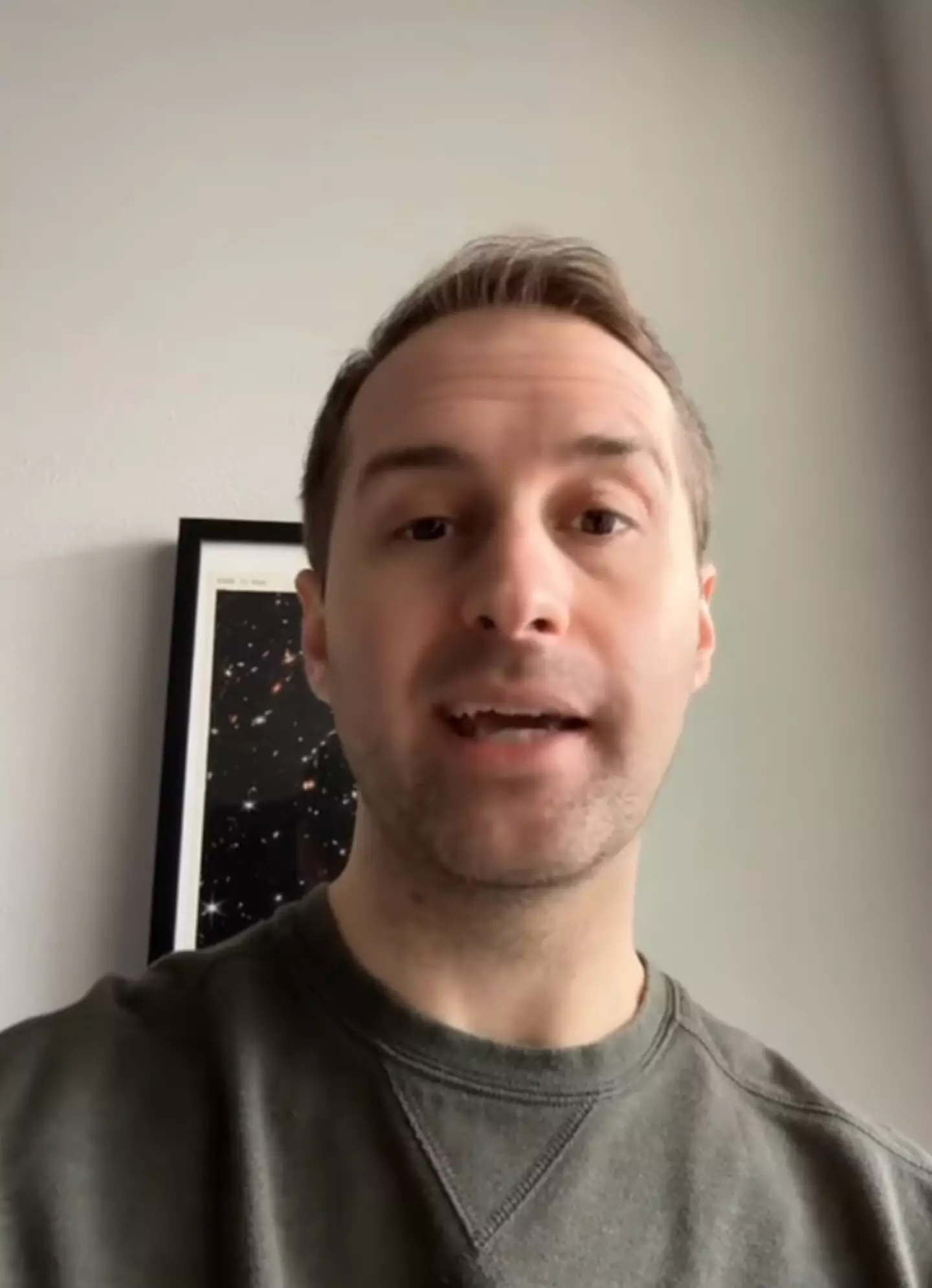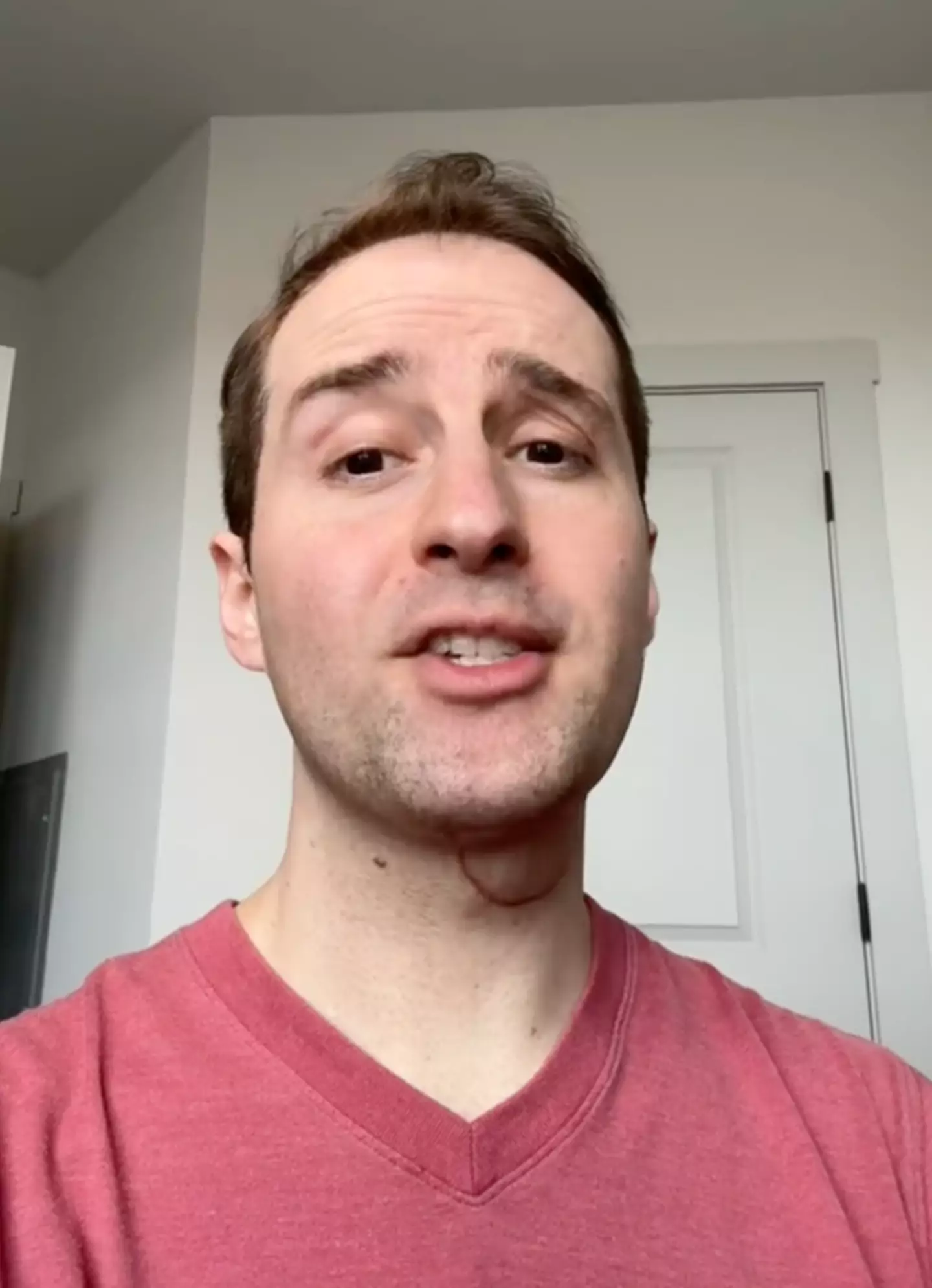
A man has shared the glaring signs missed by doctors before being diagnosed with a rare form of cancer.
Mark, 36, was diagnosed with deadly mouth cancer, after years of health professionals dismissing his symptoms as ‘mental health‘ problems or as a result of him being a hypochondriac.
Just one week before he was diagnosed, Mark was told at an annual check up that he was ‘perfectly healthy’, with urine and blood tests coming back fine.
Based in Denver, US, Mark shared that in previous appointments with doctors, they were ultimately unhelpful as he needed to visit a different doctor to demand a different opinion before finding anything out.
In a video posted on TikTok, he revealed: “I learned the hard way that your annual doctor’s visit and the standard blood work they do is not always a great indicator of your health.

Mark shared the signs that doctors missed. (TikTok/@mendandthrive)
“They can’t usually predict or diagnose diseases like cancer. You know yourself better than anyone and any doctor and sometimes even better than the results of a test. This is why it’s so important to be persistent.”
He detailed that he had been experiencing constant lightheadedness, tightness in his chest and brain fog for not just months, but years.
Mark said that he had been ‘in and out’ of doctors’ offices, emergency rooms and even specialist clinics prior to the diagnosis, with all tests coming back normal.
It got to the point where he was told that he was being too young to worry about his health, being referred to a therapist for mental health support.
But then, early this year, he started to experience new symptoms such as a fever, night sweats and finally, a mouth ulcer appeared – this time he turned to a different doctor and pushed for a biopsy of the ulcer, just the week after his annual checkup.
This test revealed that Mark had tongue cancer, a rare disease that mostly affects elderly people over the age of 60, often caused by a history of heavy alcohol consumption and smoking, which he says he has never done.
Human papillomavirus, also known as the sexually transmitted virus HPV, is also a huge risk factor.
The diagnosis was, luckily, a stage one oral squamous cell carcinoma (SCC), the most common form of oral and tongue cancer, affecting the cells that line the surface along the side of the flexible mouth muscle.
Some symptoms of tongue cancer include ear pain, red or white patches in the mouth, weight loss, a persistent sore throat, numbness of the tongue, and swelling of the jaw.
Tongue cancer can be treated with chemotherapy, radiation, or two types of surgery – one to remove all or part of a tongue, and another to remove lymph nodes in the neck.

He was eventually diagnosed with tongue cancer. (TikTok/@mendandthrive)
It is a rare form of the disease, accounting for one percent of cancer cases in the US, though The National Cancer Institute estimates that there will be 19,300 new cases of the disease and 3,300 deaths in 2024, meaning it will count for 0.5 percent of all cancer deaths.
On average, 70 percent of patients diagnosed with the disease are alive five years later.
Mark admitted: “As you can imagine, I’m pretty frustrated, both with the healthcare system and with myself. I’m not here to bash [doctors],
“My only interest right now is to remind people that nobody’s perfect – not even the most highly skilled and experienced doctors.”
If you’ve been affected by any of these issues and want to speak to someone in confidence, contact Macmillan’s Cancer Support Line on 0808 808 00 00, 8am–8pm seven days a week.